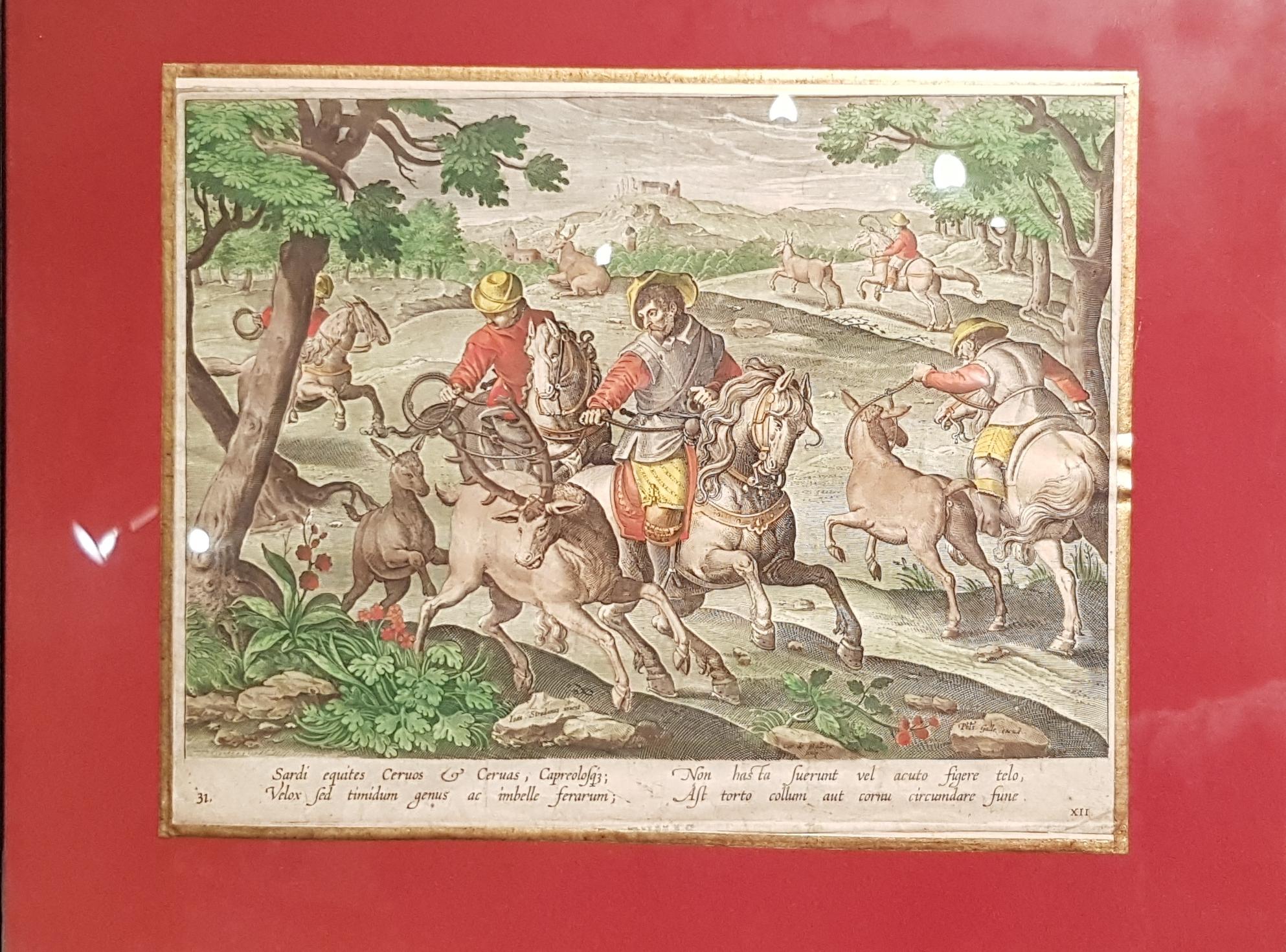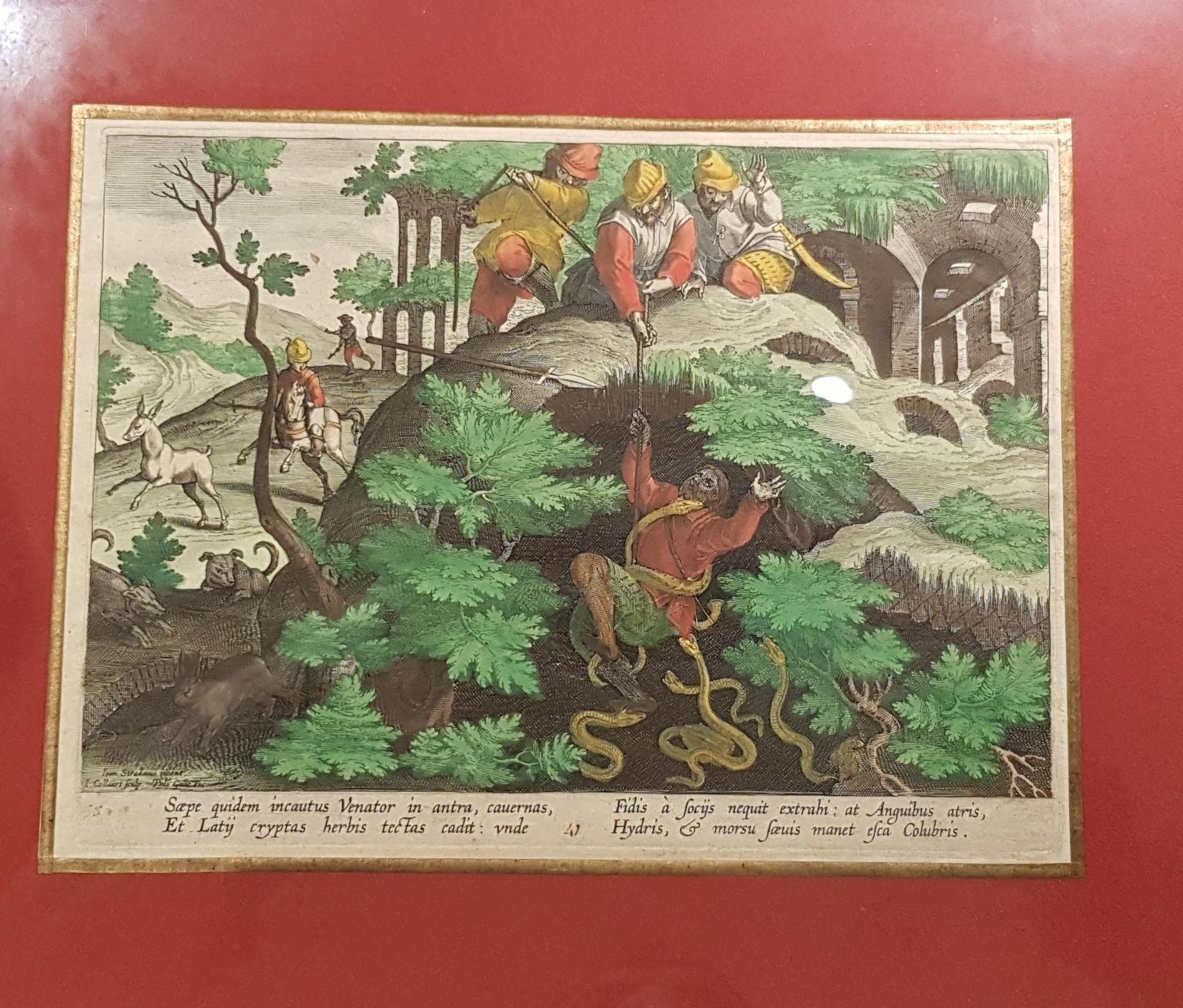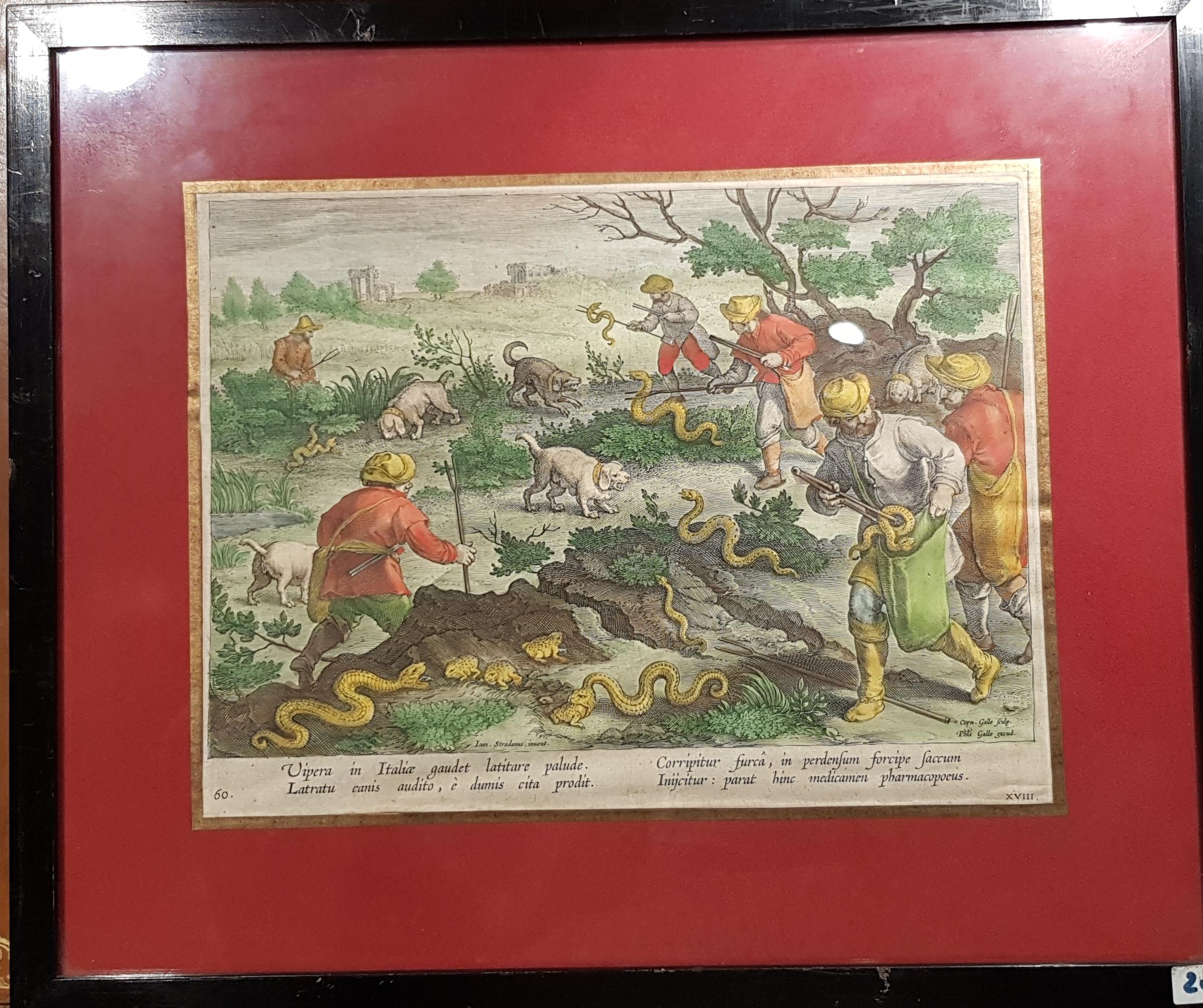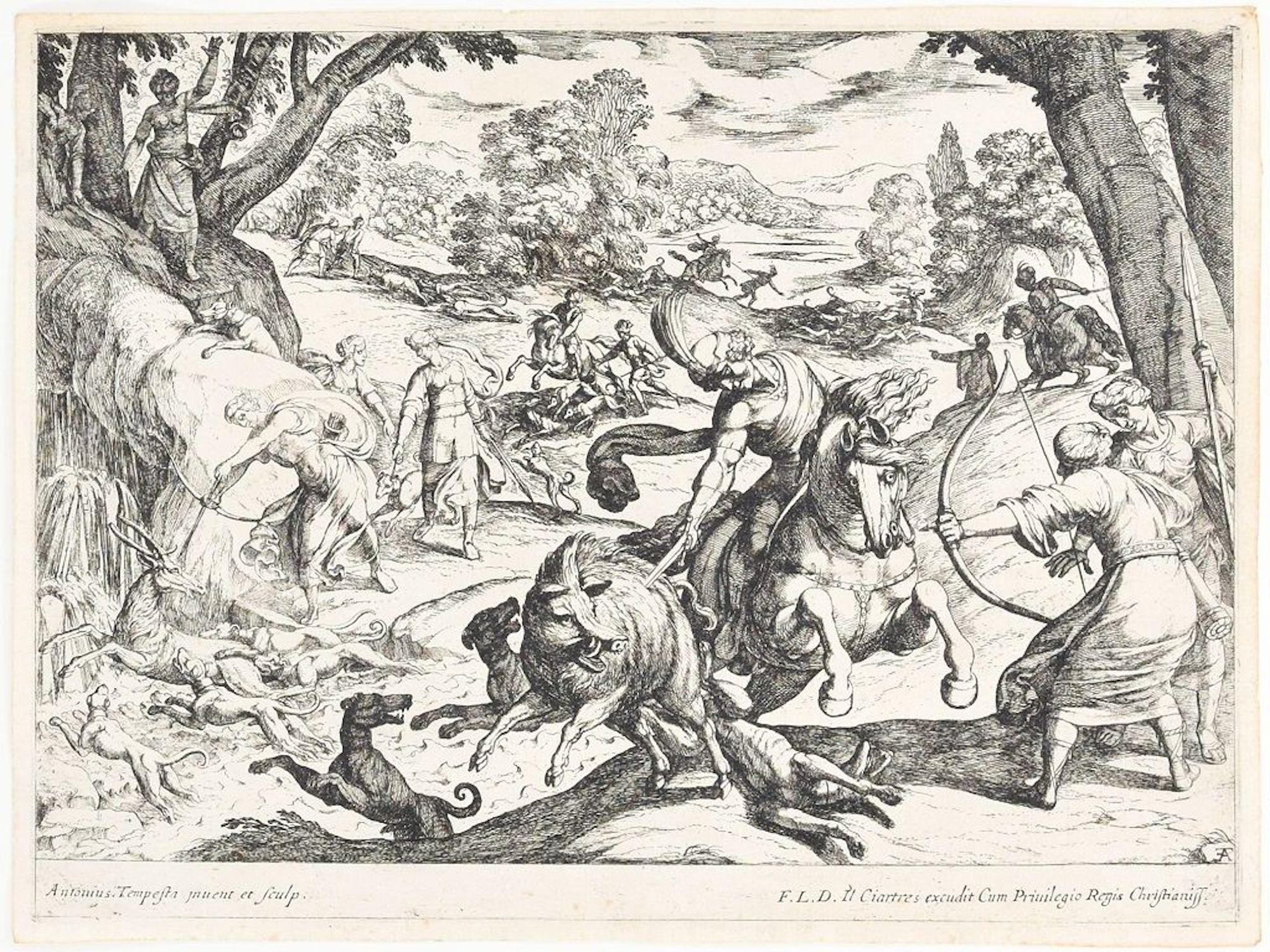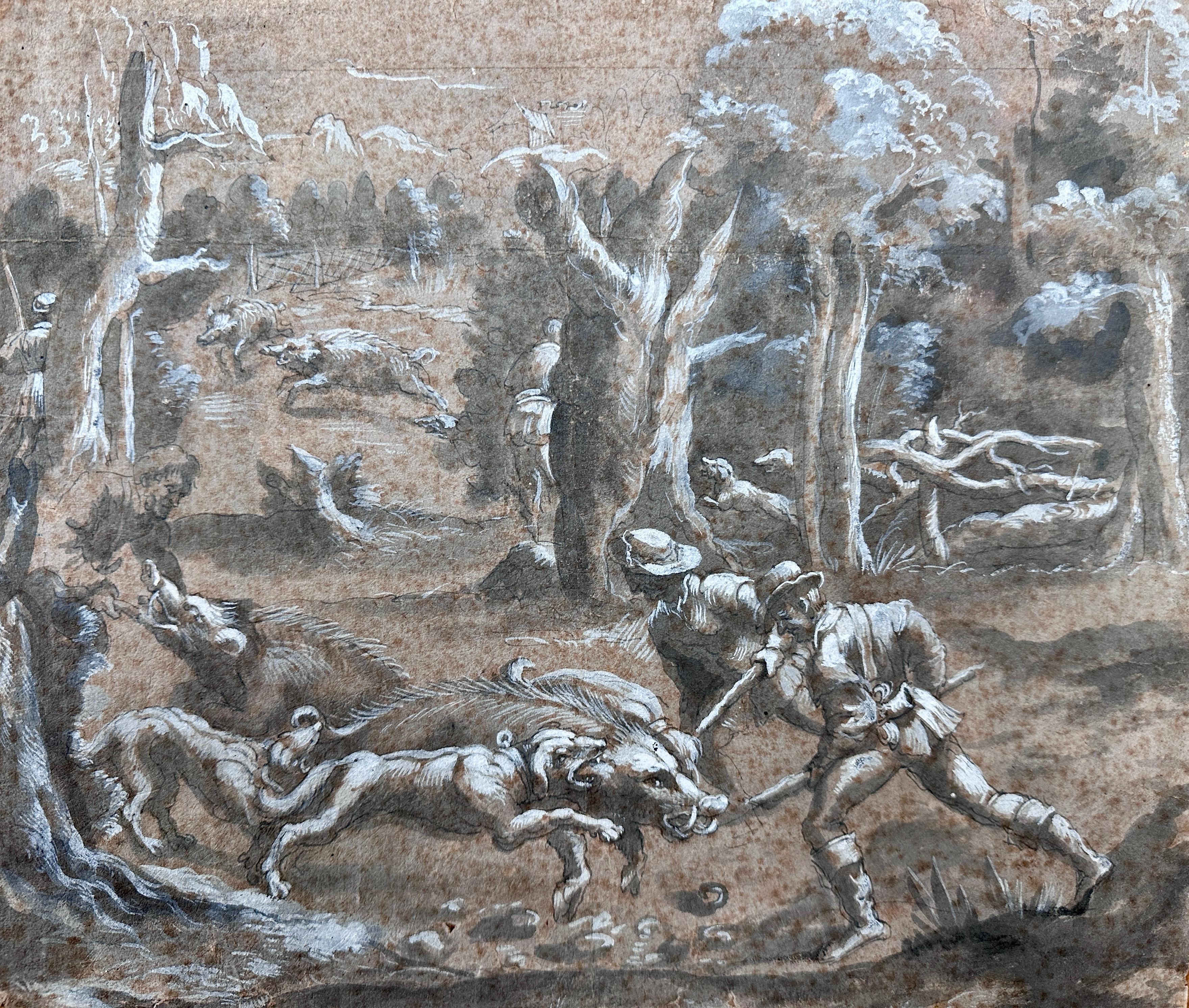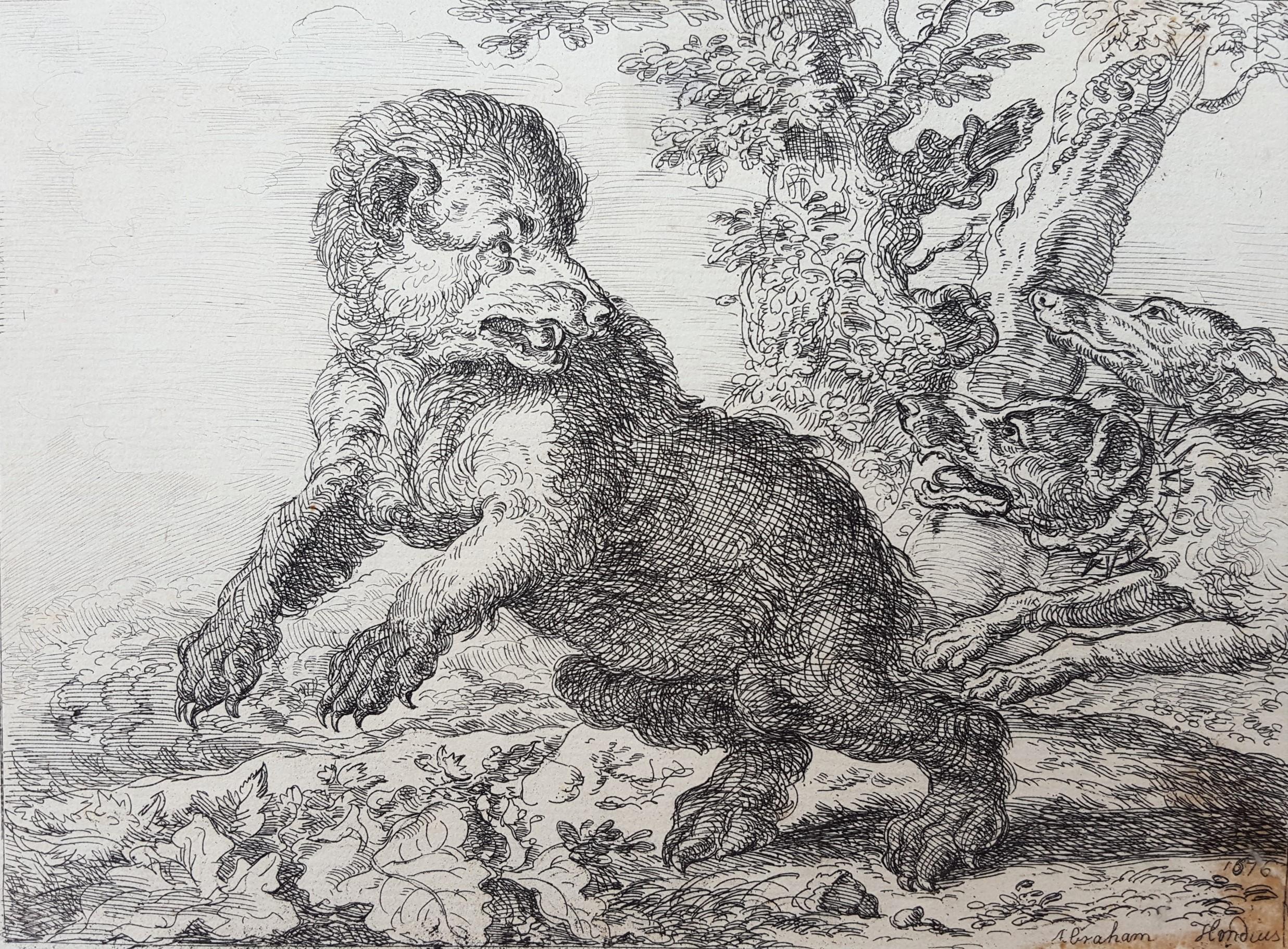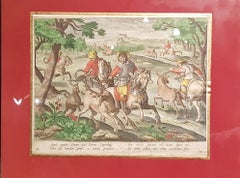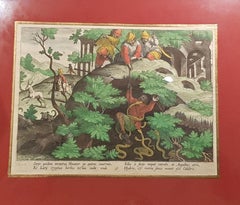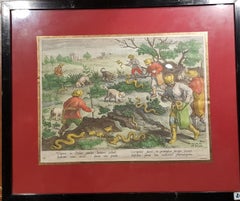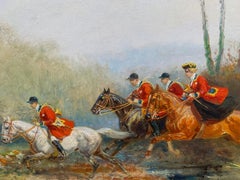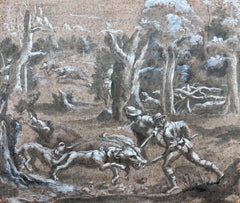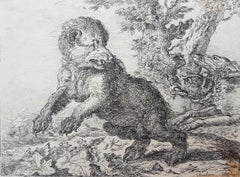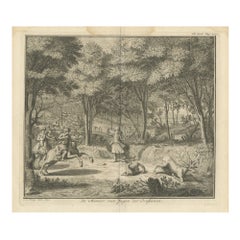Items Similar to Engraving Hunting: Hares Hunting With Cheetah
Want more images or videos?
Request additional images or videos from the seller
1 of 5
Engraving Hunting: Hares Hunting With Cheetah1750
1750
$664.04
$830.0620% Off
£493.67
£617.0920% Off
€560
€70020% Off
CA$920.25
CA$1,150.3120% Off
A$1,025.90
A$1,282.3720% Off
CHF 535.05
CHF 668.8120% Off
MX$12,405.48
MX$15,506.8620% Off
NOK 6,725.82
NOK 8,407.2720% Off
SEK 6,363.97
SEK 7,954.9620% Off
DKK 4,263.42
DKK 5,329.2820% Off
About the Item
Engraving, "The hare hunt with Cheetah" xylographs (woodcuts and copper engravings), after Jan Van der Straeten, dit Stradanus (Bruges 1523-Florence 1605). Painter of history, mythological, religious, allegorical subjects, genre scenes, landscape wall compositions, tapestry cartoons, designer, illustrator. Mannerist. He settled in Antwerp, Venice, Florence, where he worked for the Medici, and met Vasari with whom he collaborated in particular at the Vatican, at the Palazzo Vechio…. From a series of 7 engravings including - The hunt for ibex with vipers - The duck hunt - The viper hunt - The deer hunt with a lasso Flemish School 18th century. Black lacquered baguette frame, Marie Louise Rouge.
- Creation Year:1750
- Dimensions:Height: 8.08 in (20.5 cm)Width: 10.44 in (26.5 cm)
- Medium:
- Movement & Style:
- After:Jan Van der Straeten (1523 - 1605)
- Period:
- Condition:
- Gallery Location:Paris, FR
- Reference Number:Seller: D21stDibs: LU1144212517542
About the Seller
5.0
Vetted Professional Seller
Every seller passes strict standards for authenticity and reliability
1stDibs seller since 2019
8 sales on 1stDibs
- ShippingRetrieving quote...Shipping from: Paris, France
- Return Policy
Authenticity Guarantee
In the unlikely event there’s an issue with an item’s authenticity, contact us within 1 year for a full refund. DetailsMoney-Back Guarantee
If your item is not as described, is damaged in transit, or does not arrive, contact us within 7 days for a full refund. Details24-Hour Cancellation
You have a 24-hour grace period in which to reconsider your purchase, with no questions asked.Vetted Professional Sellers
Our world-class sellers must adhere to strict standards for service and quality, maintaining the integrity of our listings.Price-Match Guarantee
If you find that a seller listed the same item for a lower price elsewhere, we’ll match it.Trusted Global Delivery
Our best-in-class carrier network provides specialized shipping options worldwide, including custom delivery.More From This Seller
View AllEngraving Hunting: Deer Hunting With Lasso
Located in Paris, FR
Engraving: The Deer hunting
Woodcuts and copper engraving, after Jan Van der Straeten so called Stradanus (Bruges 1523-Florence 1605).
A historical, mythological, religious, allegorical, genre scenes, landscape and mural compositions painter.
He lived in Antwerp, Venice, Florence, where he worked for the Medici
He then met Vasari and worked with him at the the Vatican, the Palazzo Vechio ....
Out of a set of 5 prints:
- The Duck Hunting
- The ibex hunting with dogs...
Category
18th Century Renaissance More Art
Materials
Engraving
$664 Sale Price
20% Off
Hunting Engraving: Hunting Ibex With Snakes
Located in Paris, FR
Engraving: The Ibex hunting with snakes
Historical , mythological, religious, allegorical subjects, genre scenes, landscape painter.
Mannerist. He settled in Antwerp, Venice, Flore...
Category
18th Century Renaissance More Art
Materials
Engraving
$332 Sale Price
20% Off
Engraving Hunting: The Hunt For The Vipers
Located in Paris, FR
Engraving, "the hunt for vipers" xylographs (wood and copper engravings), after Jan Van der Straeten, dit Stradanus (Bruges 1523-Florence 1605). Painter of history, mythological, rel...
Category
18th Century Renaissance More Art
Materials
Engraving
$284 Sale Price
20% Off
The Hunting with Hounds Oil On Canvas by Eugene Pechaubes circa 1935
By Eugene Pechaubes
Located in Paris, FR
Oil on canvas representing a hunting.
Signed bottom right E. Pechaubes.
Eugène Pechaubes (1890-1967). French school XXth century.
He mainly painted horses and horce racing.
Within...
Category
Mid-20th Century Academic Animal Paintings
Materials
Canvas
$2,656 Sale Price
20% Off
Bacchanal scene with nymp and Satyrs, pencil on Paper signed and dated 1778
Located in Paris, FR
A Nymph and two Satyrs
Signed lower right "................fecit" and dated 1778
Grey wash over charcoal and brown ink, on laid paper
27 x 40.5 cm / 10.5 X 16 inches
Framed : 51 x...
Category
1770s Academic Figurative Drawings and Watercolors
Materials
Pencil
$1,707 Sale Price
20% Off
The Flight of the Holy Family to Egypt, Oil on canvas, Italian school circa 1680
Located in Paris, FR
The Flight into Egypt, an episode of childhood of Christ in the New Testament, representing Joseph, Mary and Jesus on a donkey, fleeing from Palestine to Egypt, at the behest of the ...
Category
17th Century Old Masters Interior Paintings
Materials
Canvas
$10,434 Sale Price
20% Off
You May Also Like
Hunting Scene - Original Etching by Antonio Tempesta - Early 17th Century
By Antonio Tempesta
Located in Roma, IT
Image dimensions: 20.4 x 27.5 cm.
Hunting Scene is a wonderful black and white etching on thick laid paper, realized by the Italian master, Antonio Tempesta (1555-1630).
Monogramm ...
Category
Early 17th Century Baroque Figurative Prints
Materials
Etching
Hunting Scene
By Jan Van der Straet
Located in Paris, Île-de-France
Attributed to Jan VAN DER STRAET, called Stradanus (Bruges, 1523 – Florence, 1605)
Hunting Scene
Pen and brown ink, brown wash and white heightening on prepared brown paper,
26 × 31 cm
Unsigned
Provenance
Private collection, France
This striking and highly accomplished drawing depicts a wild boar hunt in a wooded landscape, animated by numerous figures and animals. The dramatic energy of the foreground, where hounds and hunters engage the beast, is heightened by the bold use of white heightening, which models the forms and enlivens the surface. The background, structured by tall trees and populated with additional hunting scenes, lends the composition a theatrical depth.
Attributed to Jan van der Straet, known as Stradanus, this work belongs to the artistic context of Medicean Florence, where the artist developed an important body of hunting scenes intended for illustration and engraving. Influenced by Italian Renaissance models as well as his native Flemish culture, Stradanus excelled in dynamic storytelling and elegant draftsmanship.
The drawing may have been a preparatory study for one of the compositions from the celebrated Venationes Ferarum, Avium, Piscium series, engraved in Antwerp under the supervision of Philips Galle...
Category
16th Century Old Masters Animal Drawings and Watercolors
Materials
Ink
$7,707
Honden Jagen Op Een Beer (Hounds Hunting a Bear) /// Old Masters Dogs Landscape
By Abraham Hondius
Located in Saint Augustine, FL
Artist: Abraham Hondius (Dutch, c.1625-1691)
Title: "Honden Jagen Op Een Beer (Hounds Hunting a Bear)"
*Signed and dated by Hondius in the plate (print...
Category
1670s Old Masters Animal Prints
Materials
Etching, Laid Paper, Intaglio
Persian Hunting Scene – 18th-Century Engraving of Archery and Game by Philips
Located in Langweer, NL
Persian Hunting Scene – 18th-Century Engraving of Archery and Game by J.C. Philips, 1754
This dynamic and finely detailed 18th-century engraving, titled De Manier van Jagen der Pers...
Category
Antique 1730s Dutch Prints
Materials
Paper
Hunting the Bear - Etching By Jean Jaques Flipart- 18th Century
Located in Roma, IT
Hunting the Bear is an old master artwork realized by Jean Jaques Flipart (1709 - 1782) in the late 18th Century
Sheet dimensions 37.5 x 52 cm
Title printed on plate.
Category
18th Century Old Masters Prints and Multiples
Materials
Etching
A Wild Boar, and a Bear, from Animalium Quadrupedum
By Adriaen Collaert
Located in Middletown, NY
Drypoint etching in brownish black ink on J. Whatman watermarked cream laid paper. 7x12 1/4 inches (177 x 312 mm), full margins. Signed and numbered 36/75 in pencil, lower margin. In...
Category
16th Century Old Masters Animal Prints
Materials
Laid Paper, Engraving
More Ways To Browse
Engraving Religious
Renaissance Engraving
Hunting Scene Art
Venice Engraving
Engravings Of Venice
Deer Hunting
Hare Antique
Hunting Engravings
Engraving Flemish
Hunt Engraving
Flemish Copper
Tapestry The Hunt
Van Hunt
Duck Hunting
Antique Tapestry Hunting Scene
Engravings Hunt Scenes
Antique Cheetah
Robert Indiana Love Rug
